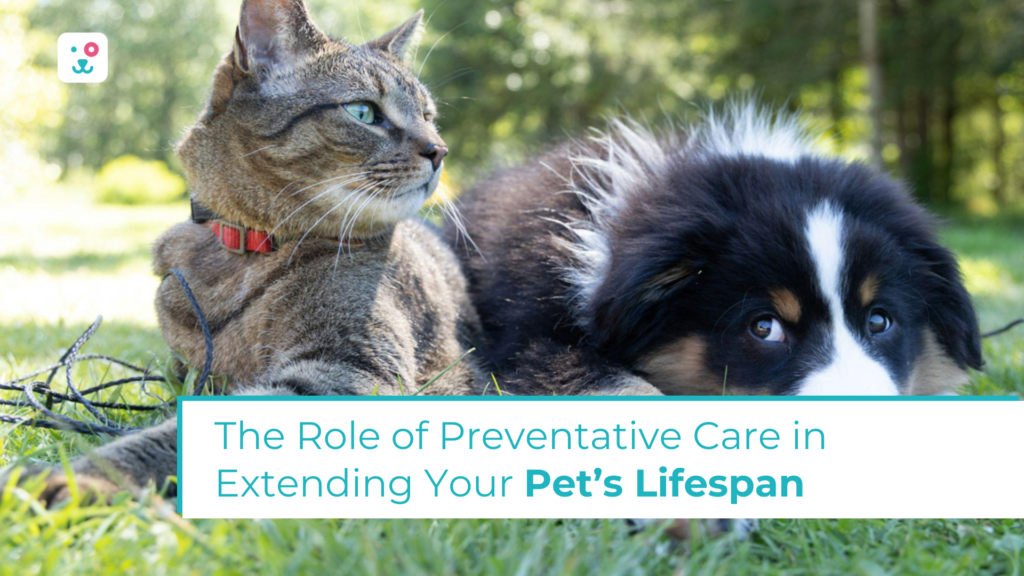As pet parents, we all dream of our furry companions growing old alongside us—playful tails wagging well into their senior years. While affection, quality food, and cozy living spaces form the foundation of a pet’s happiness, it’s preventative care that truly holds the key to Pet’s Lifespan longevity.
Whether you’re raising a playful puppy or caring for a senior dog with years of wisdom in their eyes, proactive health management is essential. From early detection of underlying illnesses to regular check-ups and lifestyle adjustments, taking preventative steps can greatly improve the chances of a long and healthy life. For instance, partnering with a trusted veterinary clinic in Singapore ensures your pet receives consistent, compassionate monitoring and professional guidance—a cornerstone of responsible pet ownership.
Why Preventative Care Should Be a Priority
Our pets rely on us to notice when something’s wrong, but many conditions don’t show visible symptoms until they’ve progressed significantly. Dogs and cats, in particular, are experts at hiding discomfort. This is an instinct rooted in survival, but it means that pet parents often miss early warning signs. Preventative care, including regular wellness exams, can bridge this gap.
By scheduling routine veterinary visits, subtle shifts in behavior, weight, or appearance can be assessed by trained professionals who understand what to look for. These check-ups serve as critical touchpoints for early detection of chronic issues such as arthritis, heart murmurs, thyroid problems, and kidney disease. Early treatment often translates to less invasive procedures, lower costs, and—most importantly—better outcomes.
The Pet’s Lifespan Impact of Routine Check-Ups
Think of routine vet visits as your pet’s health diary—each appointment adds a new chapter, revealing how they’ve changed and grown. For younger animals, these visits help set a baseline for vital signs, weight, and behavior. For adult and senior pets, they offer opportunities to track trends and detect anomalies early.
Vets typically perform a thorough physical exam, looking at coat condition, eyes, teeth, heart and lung function, joints, and even your pet’s mental alertness. They may recommend diagnostic tests such as bloodwork, urine analysis, or X-rays if something appears unusual. These tools help uncover silent illnesses that may be brewing under the surface.
According to the American Veterinary Medical Association (AVMA), preventative health screenings and regular vet care significantly improve both the quality and length of pets’ lives. They recommend semi-annual check-ups, particularly for older pets or those with known health risks.
Vaccinations and Parasite Control: A Shield of Protection
Vaccinations are more than just a requirement—they’re a vital layer of defense against fatal and highly contagious diseases. Puppies and kittens typically receive a series of core vaccines early in life, followed by booster shots at regular intervals. Core vaccines include protection against distemper, parvovirus, hepatitis, and rabies. Depending on your region and lifestyle, your vet may also recommend non-core vaccines like those for leptospirosis or kennel cough.
Equally important is parasite control. Fleas, ticks, heartworms, and intestinal parasites can cause everything from itching and anemia to life-threatening complications. Many of these pests are zoonotic, meaning they can be transmitted to humans, making prevention crucial for the entire family.
Your vet will recommend a year-round plan for parasite prevention that may include monthly spot-on treatments, oral medications, or collars—customized to suit your pet’s needs and your environment.
Nutrition and Weight Management: Daily Defense Mechanisms
Your pet’s diet is their daily dose of medicine. What they eat directly impacts their energy levels, immune strength, and internal organ function. Obesity is one of the leading causes of preventable disease in pets. higher-weight person dogs and cats are more likely to suffer from diabetes, joint issues, heart disease, and certain cancers.
Preventative care involves understanding your pet’s ideal weight and feeding them accordingly. This means measuring meals, avoiding excessive treats, and selecting age-appropriate, nutrient-dense food. Your vet can help you create a feeding plan that supports your Pet’s Lifespan and metabolism.
You can also consider supplementing with ingredients like Omega-3 fatty acids for joint health, probiotics for digestion, and dental chews to support oral hygiene.
Don’t Underestimate Dental Health

Dental disease is one of the most common and often neglected issues in pets. By the age of three, most dogs and cats show signs of periodontal disease. Left untreated, oral infections can enter the bloodstream and damage vital organs like the heart, liver, and kidneys.
Simple preventative measures—like regular brushing, dental treats, and periodic cleanings—can go a long way in preventing plaque buildup and bad breath. Some breeds are particularly prone to dental issues, so talk to your vet about your pet’s specific risk factors.
Mental Stimulation, Exercise, and a Healthy Routine
Preventative care goes beyond medical interventions. Mental and physical health are deeply intertwined. A bored or stressed pet is more likely to exhibit destructive behaviors or suffer from anxiety-related health issues.
Make time for daily walks, training exercises, games like hide-and-seek or food puzzles, and safe socialization with other pets. These activities help maintain a healthy weight, keep muscles toned, and support cognitive function, especially as pets age.
Creating a consistent routine with designated times for meals, walks, play, and sleep also reduces anxiety and keeps your pet grounded.
Also Read: Dogs’ Lifespan: The 10 Longest Living Dog Breeds to Accompany You Through Life
Partnering With the Right Veterinary Team
Your relationship with your vet should be built on trust and communication. A reliable veterinary clinic will not only offer medical expertise but will also take the time to understand your pet’s individual personality, health history, and lifestyle. Look for clinics that offer comprehensive services, from diagnostics to dental care, and that emphasize the importance of wellness exams.
Preventative Care is a Pet’s Lifespan Gift

Caring for a pet is a beautiful responsibility—and like all meaningful relationships, it thrives on consistency, attention, and proactive effort. Preventative care empowers pet parents to stay ahead of health problems, ensuring that small issues never become big ones.
By prioritizing routine vet visits, vaccinations, good nutrition, mental enrichment, and a healthy lifestyle, you’re not only protecting your pet’s well-being—you’re giving them the gift of time.
Every wag of the tail, every curious nose sniffing the breeze, every restful nap in your lap becomes a testament to the love and effort you’ve invested. And in return, you receive the incomparable joy of watching your best friend thrive.

